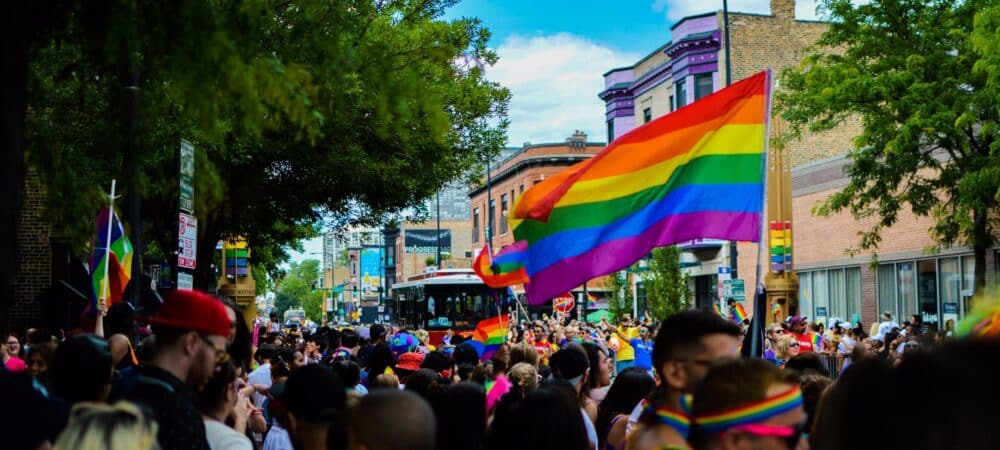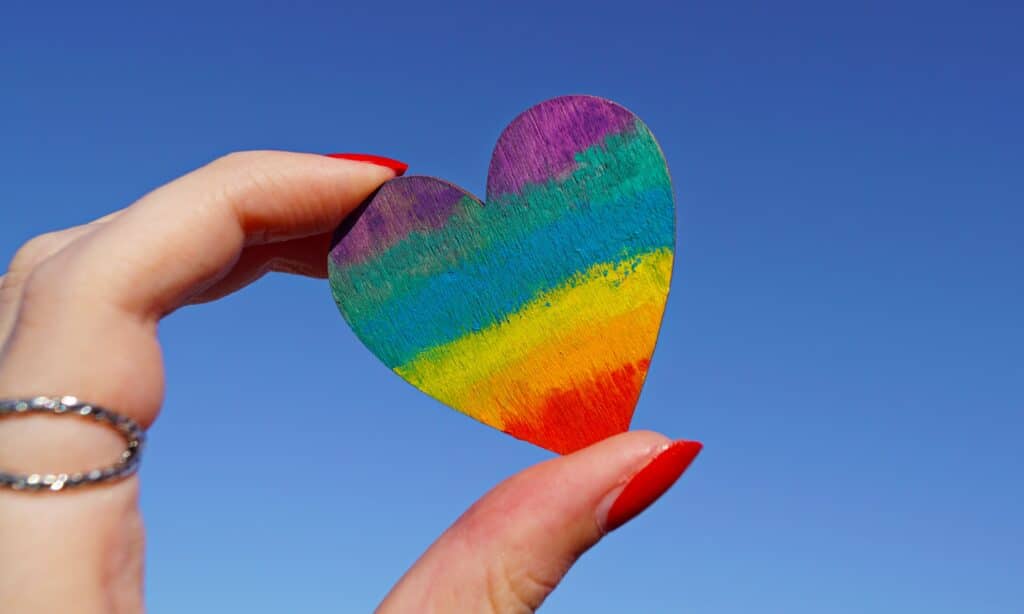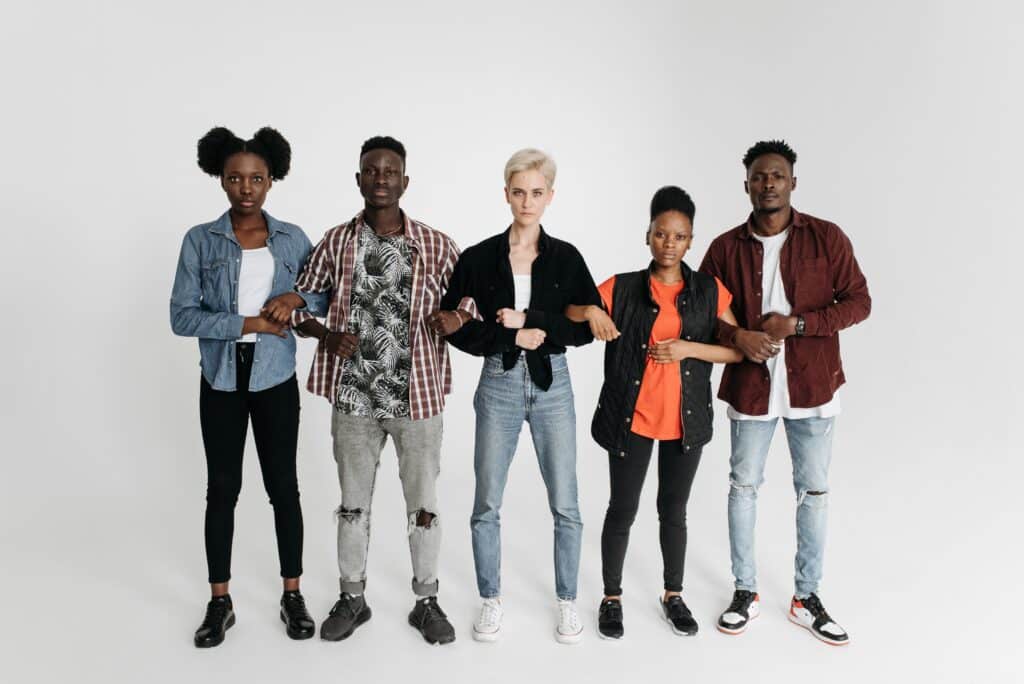


Access to life-saving addiction treatment for the LGBTQIA community is viral for marginalized communities that already face stigma and discrimination.
LGBTQIA+ is an umbrella term acronym that represents people who identify as lesbian, gay, bisexual, transgender, queer, and questioning. The plus sign at the end is an inclusionary symbol to signify those who identify as another sexual identity, such as pansexual, two-spirit, and non-binary.
In the face of acceptance amongst each other, the LGBTQIA community experiences many societal challenges. Members have difficulty obtaining adequate healthcare, from gender-affirming therapies to addiction treatment.
Despite growing LGBTQIA awareness, significant improvements in critical care standards are still needed. Educating medical providers on LGBTQIA+ needs is vital for improving community health outcomes.
LGBTQIA+ individuals still deal with the heavy stigma surrounding their gender and sexuality among the general public in spite of recent movements promoting representation and allyship. Still, many are at risk of discrimination, loss of employment, abuse, hate crimes, homelessness, and more.
Unfortunately these stressful circumstances can lead to poor mental health. With a lack of accessibility to healthcare, some members of the LGBTQIA+ community seek out coping mechanisms such as substance use.
In fact, over 39 percent of LGBTQIA+ adults reported illicit drug use compared to a rate of about 17 percent of the overall adult population in the US. Among LGBTQIA adults misusing substances, nearly 52 percent struggle with illicit drugs. Almost 65 percent face alcohol use issues, with over 16 percent battling both.
Studies also show that LGBTQIA folks tend to have more severe cases of substance use disorders than cisgender heterosexuals. In addition, they are facing a 120 percent increased risk of experiencing homelessness, especially the younger subset.
LGBTQIA+ people face a greater risk of substance addiction, highlighting the urgent need for inclusive addiction treatment in the U.S.

To effectively aid LGBTQ+ individuals in addiction recovery, evidence-based treatments must be tailored. These should include therapies addressing the community’s unique issues.
Specialized substance use disorder research and treatment planning should consist of medical providers who understand LGBTQIA patients. In addition, they should do this while providing safe, nonjudgmental spaces for them to seek individual and group counseling.
Incorporating overall health and wellness oversight is vital in treating addiction and related health concerns in the LGBTQIA+ community.
LGBTQIA+ individuals thrive in safe, accepting communities where they can be their true selves. Trust is an important factor when members of the LGBTQIA+ community open up and share their past struggles and experiences that often lead them to substance misuse from the start.
Discussing and healing this unresolved trauma can immensely help patients heal and strive for better overall health. Creating addiction treatment programs that strictly denounce prejudice against those of non-heteronormative sexualities or cisgenders helps patients feel they can trust their medical providers and counselors.

An office-based outpatient treatment format for the LGBTQIA+ community can be preferable for many reasons when compared to intensive inpatient programs.
Whole patient care: Access to providers who assess addiction comorbidities is crucial for the LGBTQIA with other health issues. Not only will full-patient care increase their chances of success in recovery, but they can also develop a trusting relationship with their physician to seek out help when needed.
Flexible scheduling: OBOT doesn’t require daily visits to obtain necessary medication. Patients are given prescriptions that they can fill at a pharmacy of their choice and dispense the medication at home. Monthly check-ins for refills are simple to arrange with a quick phone call or online booking.
Preferential locations: In many cities across the country, members of the LGBTQIA community have moved close to each other, forming inclusive neighborhoods that cater to their personal needs and interests. This includes treatment facilities that are aware of their niche clientele to create a more welcoming and medically effective environment.
Like-minded peer groups: Along with OBOT locations in LGBTQIA neighborhoods, the patients who frequent these offices for group counseling are also more likely to be like-minded individuals. This helps patients form new friendships in recovery, which are very important to building strong support networks.
Ongoing care: “Rehab” that only lasts a certain amount of time can be effective, but many people with unique medical needs, including medication-assisted treatment, will require ongoing care. Visiting an office-based outpatient treatment center incentivizes long-lasting recovery and can reduce the chances of chronic relapse.
Community outreach: Localized outpatient care provides a chance for the LGBTQIA community to come together and spur initiatives to help members of their group. Addiction prevention and awareness campaigns are more effective when delivered by someone from the same group
Privacy and safety: OBOT allows patients to attend their appointments in medical offices discreetly. There are no long lines or crowded waiting rooms at these offices compared to other clinics. For the LGBTQIA+ community, this option feels safer to avoid recognition or discrimination.
Middlesex Recovery welcomes all seeking help with substance misuse, regardless of race, religion, sexuality, or gender. The compassionate medical providers and staff at Middlesex Recovery understand the extra hurdles LGBTQIA+ individuals face in healthcare. That is why we are committed to helping every patient maximize their chances of reaching long-lasting recovery.

If opioid addiction is impacting your life or the life of someone you care about, reach out to our treatment center. We are here to provide the support and care you need to take the first step toward recovery.
Call 781.303.9936